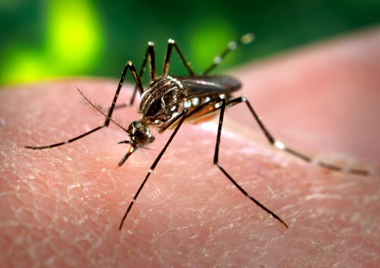Experts Advisory: Zika Virus Poses Public Health Challenges
 |
|
The Zika virus, which is transmitted by mosquito bite, is now active in at least 48 countries and territories according to the CDC.
|
ALBANY, N.Y. (June 6, 2016) – With the 2016 Rio Olympics less than two months away, the World Health Organization (WHO) and the International Olympic Committee (IOC) are battling global concerns about the Zika virus. While WHO is providing safety tips for travelers, currently only pregnant women are being instructed not to travel to areas with ongoing Zika virus transmission.
As of June 1, the Centers for Disease Control reports that there are 48 countries and territories with active Zika virus transmission. This includes Brazil, home to the Olympics, as well as the U.S. commonwealth of Puerto Rico. The impact of the disease on the public health infrastructure, tourism and economies of the affected areas remains a significant concern.
University at Albany faculty members are available to discuss the causes of the Zika virus, the transmission of the disease, and the emergency preparedness, public health and business implications of its spread both from a statewide and global perspective.
The University at Albany’s Zika virus experts include:
- Bryon Backenson, assistant professor of epidemiology and biostatistics, School of Public Health: Backenson teaches the Infectious Disease Epidemiology course and studies communicable disease outbreak response. He leads the investigations and vector surveillance units of the New York State Department of Health's Bureau of Communicable Disease Control. He oversees the Department's investigation of communicable disease outbreaks in New York, and collaborates with other states and the CDC on multi-state outbreaks. He also oversees surveillance of vector-borne diseases in the State, monitoring diseases carried by mosquitoes and ticks.
- Blanca Gonzalez, adjunct professor, College of Emergency Preparedness, Homeland Security and Cybersecurity: Gonzalez teaches courses on Introduction to Health Emergency Preparedness. She examines how emergency services interact with minority communities during crises, and barriers to health care for minorities. She has also presented on Hurricane Katrina: public health impacts, then, now, and tomorrow. Gonzalez holds a master's degree in public health as well as a Graduate Certificate in Public Health Surveillance and Preparedness from the University at Albany, and a bachelor's in nursing degree from Utica College. She is an experienced Emergency Responder and has more than 10 years’ experience in Community Health Teaching and Community-based Participatory Research primarily related to health disparities among the Latino population.
- Suraj Commuri, associate professor of marketing, School of Business: Commuri is an expert on brand awareness and impact. He studies marketing trends, brand counterfeiting and consumer-generated content. He previously served as a research consultant for multinational brands entering Asian markets. Prior to coming to UAlbany, Commuri was at the University of Missouri, where he taught at their College of Business and the interdisciplinary Center for the Digital Globe.
![]() For more news, subscribe to UAlbany's RSS headline feeds
For more news, subscribe to UAlbany's RSS headline feeds
A comprehensive public research university, the University at Albany-SUNY offers more than 120 undergraduate majors and minors and 125 master's, doctoral and graduate certificate programs. UAlbany is a leader among all New York State colleges and universities in such diverse fields as atmospheric and environmental sciences, business, education, public health,health sciences, criminal justice, emergency preparedness, engineering and applied sciences, informatics, public administration, social welfare and sociology, taught by an extensive roster of faculty experts. It also offers expanded academic and research opportunities for students through an affiliation with Albany Law School. With a curriculum enhanced by 600 study-abroad opportunities, UAlbany launches great careers.


